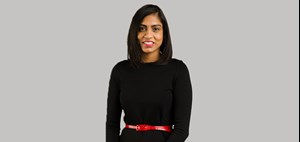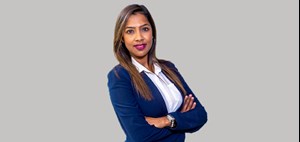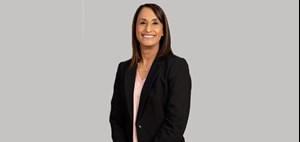We sat down with Esther to understand what makes her tick and to unpack her best advice for South Africa’s future female business leaders.
Q: What drives Esther Munyi?
I’ve always been incredibly curious. The key to happiness and success is to understand yourself and to know what you value. I have a passion for data and people. I want to play my part to change the world for the better and what I’ve learnt is that you don’t need to do something enormous to make a difference. Small, meaningful contributions can inspire people and change their lives. Data is extremely powerful in this regard. It doesn’t have feelings nor opinions. Data is an indispensable commodity that offers facts, and yet you can tell a story with it. When you give people information they didn’t have, it changes how they engage with each other and the world.
I’m also dedicated to doing things that excite me. If I’m doing something I don’t love, I must adapt. Mediocrity doesn’t resonate with me. Just doing something for the sake of doing it doesn’t support a meaningful life.
Q: What does success look like for you?
If I’m able to see that I have changed something in someone, whether it’s inspiring them to pursue their dreams, sharing knowledge that helps them meet their goals, or simply making it easier for them to achieve greatness, that’s a success!
I have parents who lived a life serving others. My parents were ambitious, fearless and their kindness touched people. Our home was always open to anyone in need and it taught me that we find meaning in our own lives by caring for others. There were people from all walks of life at my mother’s funeral, from street sweepers to CEOs and ministers. The legacy of my parents is that they sacrificed so much for me, and I would like to pay that forward.
Q: What attributes do you believe make a good leader?
This changes from leader to leader, so I think the important thing is to know yourself. I’ve never been very good at work-life balance, but I’ve realized that I can’t lead others if I don’t lead myself, and leading oneself comes down to deliberate, intentional and conscious self-care. It was a lesson I learnt when I became a mother. I couldn’t be the mother my son needed me to be if I wasn’t at my best. Self-love became really important.
Q: What is the biggest lesson you have learnt in your career?
Realising that I didn’t have to conform to be successful. There’s a tendency to believe that there is a ‘corporate’ way, but the reality is that when we surround ourselves with people with diverse personalities, cultures and backgrounds, that’s when innovation happens. When I brought my authentic self to the table and shared my unique views, that’s when I really started adding value, and that’s true of each and every one of us. On the other hand, we should conform to the same values as an organisation, but we certainly shouldn’t all be clones of each other.
Q: What is the biggest lesson you want to teach your children?
I want my son to be okay to fail. We live in a world where failure has repercussions and so we fear failure when in fact we should embrace it. Failure is how you learn. Making mistakes is what makes us better. You will never live your authentic self if you’re scared of failure because you’ll be too busy trying to comply with societal norms for acceptance. I want my son to live with conviction; to know that he is enough just as he is. I want him to “reach for the moon, even if he misses, he’ll land amongst the stars”
Q: What advice would you give the future female business leaders of the world?
Timing is everything. Once I became a wife and mother while simultaneously building my career, I realized that you could have everything, you just can’t have it all at the same time, so choose your battles for that moment. As women, we live in a corporate world that wasn’t designed for us. It didn’t take into account full-time mothers who are also full-time employees, managers or leaders. It didn’t take our biological clocks into account. More and more we are seeing female leaders in workplaces across the world, but the fundamentals of how this world was created haven’t changed. The key is to understand what those barriers are because knowledge is power.






